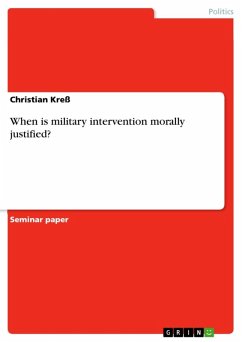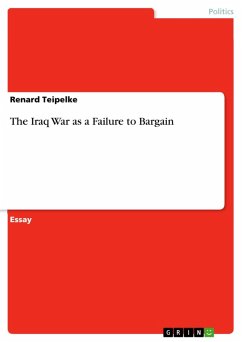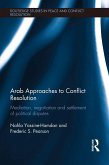Essay from the year 2003 in the subject Politics - Topic: Peace and Conflict, Security, grade: 2+ (B+), University of Kent (Brussels School of International Studies), course: Theories of International Conflict, language: English, abstract: For centuries, inter-state war has been standard practice in international relations. In the second half of the twentieth century the possibility of a nuclear confrontation between the United States and the Soviet Union was the major security concern in the world. Yet, with the end of the Cold War, the security threats states are faced with have changed radically. The risk of a major nuclear war has virtually disappeared. "Global nuclear warfare is no longer the primary international security concern." Today, war as a means to settle international disputes has largely been eliminated. The developed countries have established a security regime that safeguards peaceful relations among them. "[...] war among the leading great powers - the most developed states of the United States, West Europe, and Japan - will not occur in the future, and indeed is no longer a source of concern for them." However, the world is by no means safer than it has been in the past. New risks like international terrorism, organised crime, the proliferation of nuclear, chemical and biological weapons to rogue states or criminal organisations, political or religious extremism, diseases like HIV/Aids, environmental disasters, poverty and inequality, etc. present new challenges to states and societies. Traditional security institutions like the military are not necessarily capable of dealing with these new risks, but must redefine their role and need to be reformed. Different countries have different approaches to the reform of their military, perhaps most significant is the difference between the USA and Germany. While the US military reform is concentrated around technology and strategies, Germany goes beyond the purely operational level, recognises that the new security challenges cannot be dealt with by simply modernising weapons systems and instead seeks to reform the institutional framework of the military.
Dieser Download kann aus rechtlichen Gründen nur mit Rechnungsadresse in A, B, BG, CY, CZ, D, DK, EW, E, FIN, F, GR, HR, H, IRL, I, LT, L, LR, M, NL, PL, P, R, S, SLO, SK ausgeliefert werden.









